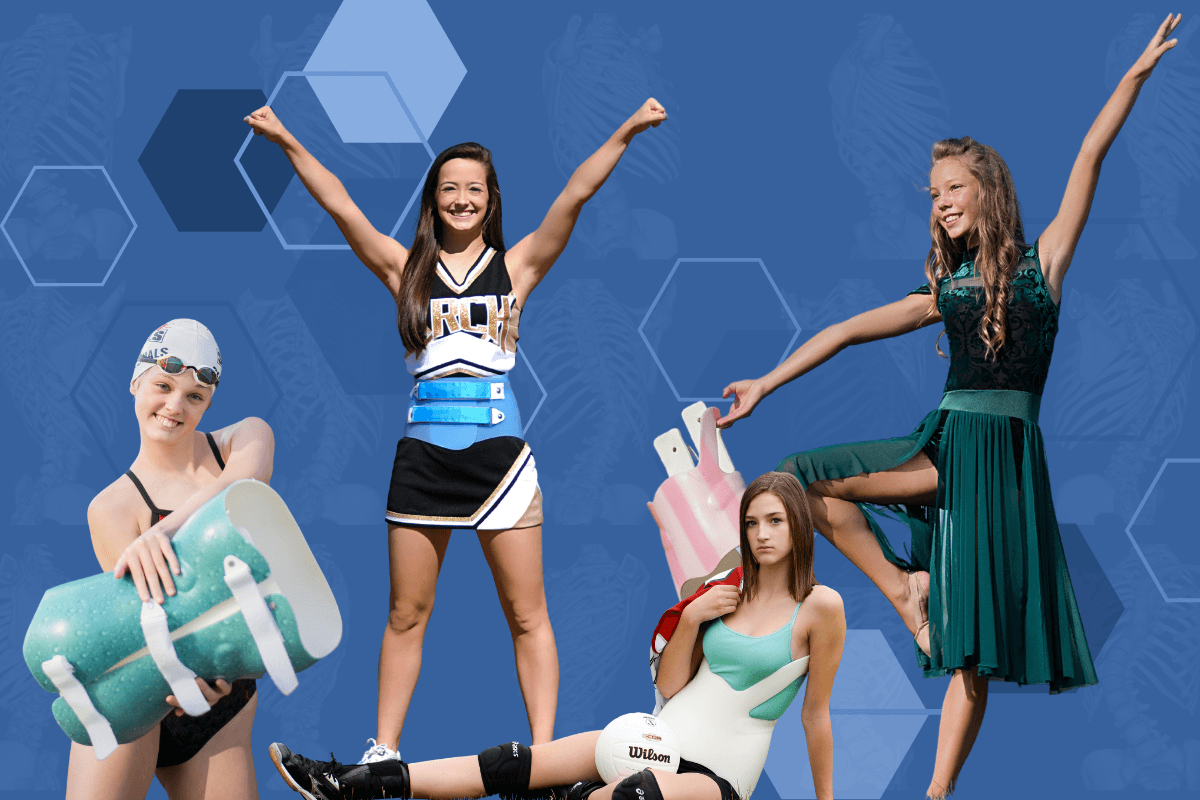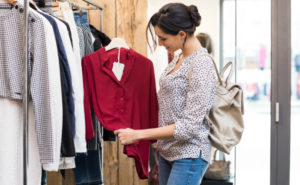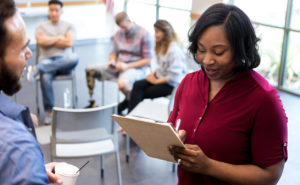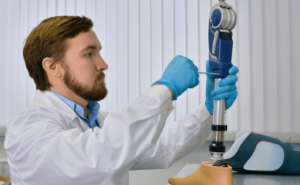Scoliosis is a medical condition that affects the spine, causing it to curve abnormally to the side. This can lead to a range of physical challenges, including back pain, decreased mobility, and other health problems. Despite these challenges, many individuals with scoliosis are still able to lead active lifestyles, including participating in sports and other forms of physical activity.
In this blog, we’ll explore the connection between scoliosis and athletics. We’ll address common concerns and provide practical advice for individuals who want to continue playing sports despite their condition.
Whether you’re an athlete or simply enjoy physical activities, we’ll offer guidance on how to stay active and healthy with scoliosis. So, let’s dive in and discover how you can overcome the challenges posed by scoliosis and keep doing what you love.

Can You Play Sports with Scoliosis?
Individuals with scoliosis can play sports. Many people with scoliosis are able to participate in sports and physical activities. However, it’s important to consult with a healthcare professional to determine what types of activities are safe and appropriate for your individual condition.
Best Sports for Individuals with Scoliosis
Here are some recommended sports and activities for children and adults with scoliosis:
Best sports for children with scoliosis:
- Swimming. This is an excellent low-impact sport that helps to improve posture and strengthen the back and core muscles.
- Gymnastics. This can help improve flexibility, coordination, and balance.
- Yoga. This can help improve spinal alignment and flexibility, as well as strengthen muscles.
- Martial arts. This can help improve balance, flexibility, and coordination.
- Dancing. This can help improve posture and flexibility.
Best sports for adults with scoliosis:
- Swimming. This is a great low-impact exercise that can help improve posture and strengthen the back and core muscles.
- Yoga. This can help improve flexibility and strength while also promoting relaxation and reducing stress.
- Walking. This is an excellent low-impact exercise that can be done almost anywhere and helps improve cardiovascular health and maintain mobility.
- Pilates. This can help improve posture, flexibility, and core strength.
- Cycling. This is a low-impact exercise that can help improve cardiovascular health and lower body strength.
It’s important to note that these activities may not be suitable for everyone with scoliosis. It’s always recommended to consult with a healthcare professional before beginning any new exercise program. A healthcare professional can provide tailored advice and ensure that the chosen activities are safe and appropriate for an individual’s specific condition.
The Impact of Sports
The impact of scoliosis on sports participation can vary greatly depending on the severity of the condition and other factors, such as age and overall health. Some individuals with mild scoliosis may experience no significant impact on their ability to play sports, while others with more severe scoliosis may experience pain and decreased mobility.
The following factors can affect the ability to play sports with scoliosis:
- Severity of the condition: The more severe the scoliosis, the more likely it is to impact the ability to play sports.
- Age: Children and adolescents with scoliosis may be more likely to experience limitations in sports participation due to their rapidly developing bodies.
- Overall health: Other health conditions, such as obesity, can exacerbate the impact of scoliosis on sports participation.
- Type of sport: Certain high-impact sports, such as football or gymnastics, may be more challenging for individuals with scoliosis, while other low-impact sports, such as swimming or cycling, may be easier.
It’s important to seek medical advice before starting a sport if you have scoliosis. Your doctor can help you understand the impact of your condition on sports participation and make recommendations for specific activities that may be suitable for you. Additionally, your doctor can advise on any precautions you should take and help you develop an exercise plan that supports your overall health and well-being.
Precautions That Individuals with Scoliosis Should Take
There are some precautions that individuals with scoliosis should take when participating in physical activities. These precautions can help prevent further curvature of the spine or injuries.
Here are some general precautions:
- Consult with a healthcare professional before starting any new exercise program.
- Choose activities that don’t put excessive strain on the spine, such as low-impact activities.
- Use proper technique and form during exercise to avoid straining the back muscles and further curving the spine.
- Wear appropriate protective equipment, such as a brace if recommended by a healthcare professional.
- Monitor for any pain or discomfort during and after exercise and adjust the activity level accordingly.
- Be consistent with your exercise routine, but avoid overdoing it. Listen to your body.
Download our FREE guide to The Best Stretches for Scoliosis!

Sports That Should Be Avoided
There are some sports and activities that may put excessive stress on the spine and should be avoided or approached with caution if you have scoliosis, especially if your curvature is severe or if you’ve undergone spinal fusion surgery. Some of these sports and activities include:
- Contact sports: Sports that involve physical contact, such as football, rugby, and wrestling, can put excessive stress on the spine and increase the risk of injury.
- High-impact sports: Sports that involve jumping or running on hard surfaces, such as gymnastics, basketball, and running, can also put stress on the spine.
- Competitive weightlifting: Heavy weightlifting can put significant stress on the spine and increase the risk of injury.
- Extreme sports: Activities that involve extreme movements, such as snowboarding, skateboarding, and BMX biking, can also put excessive stress on the spine.
Scoliosis Braces for Children in Arkansas
Children with scoliosis may need a brace to help manage the condition and prevent further curvature of the spine. Scoliosis in children can progress quickly and have significant long-term effects on health and well-being, so early intervention is crucial. A scoliosis brace can help slow or stop the progression of the condition. This allows children to grow and develop normally while reducing the risk of future health problems.
In Arkansas, scoliosis braces for children are available through a number of medical facilities and specialists, including Horton’s. These facilities offer a range of braces specifically designed for children and can provide expert advice and support throughout the treatment process.
The importance of early treatment for scoliosis in children cannot be overstated. Children with scoliosis are still growing, and their spines are still developing, making it easier to correct the curvature and prevent future health problems.
Additionally, early treatment can help reduce the impact of scoliosis on daily life, allowing children to participate in physical activities and sports, maintain good posture, and improve overall health and well-being. If your child has been diagnosed with scoliosis, seeking prompt medical treatment and support is essential to help ensure the best possible outcome.
Benefits of a Back Brace for Scoliosis
A back brace for scoliosis is a device designed to help manage the condition by supporting the spine and preventing further curvature. Scoliosis braces are typically made from lightweight, breathable materials. They are typically designed to be worn for a specified period each day.
Wearing a back brace for scoliosis can provide several benefits, including:
- Reducing the progression of the curvature: By supporting the spine, a back brace can help slow or stop the progression of scoliosis, reducing the risk of future health problems.
- Relieving pain: Wearing a back brace can help reduce pain associated with scoliosis, improving the quality of life.
- Improving posture: By supporting the spine, a back brace can help improve posture and reduce the risk of future back problems.
- Allowing normal physical activity: By reducing pain and improving posture, a back brace can help individuals with scoliosis participate in physical activities and sports, improving overall health and well-being.
It’s important to wear a back brace for scoliosis as recommended by a doctor. Your doctor will be able to advise on the best type of brace for your condition and can recommend a specific wearing schedule to help ensure the best possible outcome. Additionally, your doctor can monitor your progress and make any necessary adjustments to your treatment plan as needed. Failure to wear a back brace as recommended by a doctor can result in reduced effectiveness and potentially harm your health.
Conclusion
In conclusion, scoliosis can have a significant impact on sports participation, but it doesn’t have to stop individuals from playing sports altogether. With the right treatment and support, individuals with scoliosis can maintain an active and healthy lifestyle. It’s crucial for individuals with scoliosis to seek medical treatment and advice to help manage their condition and maintain sports participation.
Scoliosis stretches can help with mild cases of scoliosis. With the right exercises for scoliosis, one can do away with surgery and help relieve some symptoms. However, these exercises should be done with the guidance of a physical therapist or a doctor. These exercises should also be highly personalized based on the patient’s condition.
Ryan Nix, Rehab Support Director at Horton’s Orthotics and Prosthetics, is a leading provider of orthotic and prosthetic services in Arkansas. With years of experience in the field, Ryan is dedicated to helping individuals with scoliosis manage their condition and improve their overall health and well-being. For a closer look at Ryan’s expertise and the services offered at Horton’s Orthotics and Prosthetics, take a look at his YouTube video.
If you or a loved one has been diagnosed with scoliosis, don’t hesitate to contact Horton’s Orthotics and Prosthetics today. Our team offers a range of braces and support devices to help you live your best life.



